Consumers are willing to pay more for environment-friendly products, which indicates opportunities for green business have come.
Green consumption is a popular trend
With improved consumer income and awareness, green consumption trend has gained in growing popularity in developing countries including Vietnam. A 2017 research in Mechanical Design Magazine revealed that people were more willing to buy a product that highlighted sustainable features and drew environmental awareness among consumers.
A report by Nielsen in 2015 indicated that 45% of those who were surveyed all over the globe were willing to pay more money for an environment-friendly product and 41% were willing to pay more money for the environment-friendly package. Another 2010 research in the American Economic Journal showed that environment-friendly buildings had higher rental fee of about 3% and higher selling price of 16%.
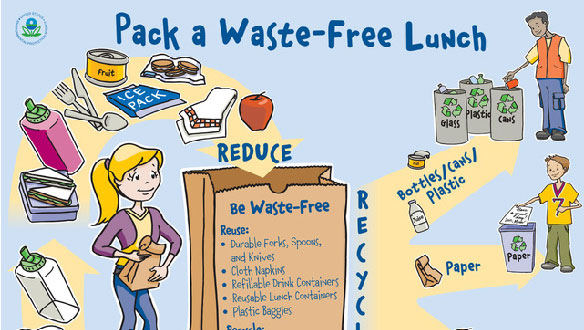
Dr. William Schulze, a professor from Cornell University, stated that motives behind the purchase of sustainable products include altruism, self-image and reputation. Gen Y consumers have a tendency to receive better education and earn higher income, becoming the top-priority target consumers of retailers.
Shelton Group, the marketing communication organization entirely focused in sustainability, once carried out a survey of the American’s opinions over the 12-year period to understand their perception towards sustainability that showed that 90% of the Gen Y would purchase a brand with social and environmental activities and 95% would recommend that brand to their friends. Gen Y spending of USD 600 billion per annum, expected to increase to USD 1.4 thousand billion, which accounts for 30% of the market are definitely significant figures leading enterprises to transform their manufacturing processes.
Enterprises are able to gain apparent benefits
from producing environment-friendly products
Firstly, enterprises could enjoy benefits from a range of support policies of the Government in many countries. In Vietnam, the National Action Plan on the Sustainable Production and Consumption by 2020 with a vision to 2030 is aimed at gradually transforming production and consumption model to improve effectiveness of natural resources and energies and to enhance the use of renewable raw materials and energies and environment-friendly products. Besides, in accordance with Circular No.128/2016 issued by the Ministry of Finance, enterprises that manufacture environment-friendly products and recycled products are entitled to enjoy export tax reduction or exemption. Manufacturers of environment-friendly products will be granted “Vietnam Green Label” by Ministry of Natural Resources and Environment.
Apart from tax relief from the Government, manufacturers of environment-friendly products will incur lower operating expenses in the long term. For example, raw material costs, design costs, labor costs and labelling costs are incurred to produce a traditional plastic bottle that will end up being thrown away, doing harm to environment and human health. Accordingly, people could choose to recycle and reuse raw materials to reduce operating expenses.
Moreover, more than 552 million shampoo bottles per annum end up at garbage dumps all over the globe and some plastic bottles that exist for more than a lifetime could be thrown into the ocean doing harm to sea species and even exerting indirect effect on our health. Thus, consumers nowadays expect ecological awareness from enterprises. By providing or selling environment-friendly products, enterprises will win loyalty from consumers and earn more revenues then.
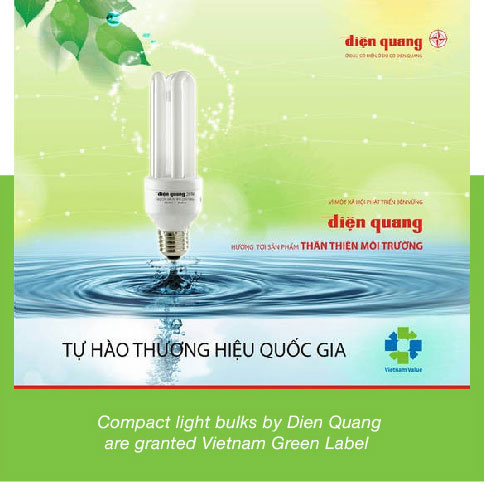
Lastly, the fact that enterprises take into consideration social corporate programs will enhance their brand image among loyal consumers and potential investors. Providing environment-friendly products will be helpful for environment, and conscience of environment and consumers’.
Criteria of an
environment-friendly product
To produce an environment-friendly product is based on the following criteria:

Products are made from environment-friendly raw materials. Nowadays, products made from recycled raw materials are highly evaluated and considered favorite green products.

Products bring about solutions to environmental safety and human health, replacing toxic and environment contaminant products.

Products exert few impact on the environment during using process and have simple and lower-cost recycling process.

Products create a friendly and healthy environment for people and the whole community.
Many enterprises have been stepping in
The number of people who are willing to pay more for environment-friendly products shows that market for green products has been gradually expanded in reality. This opens up an opportunity for enterprises to develop and promote business activities to follow this consumption trend.
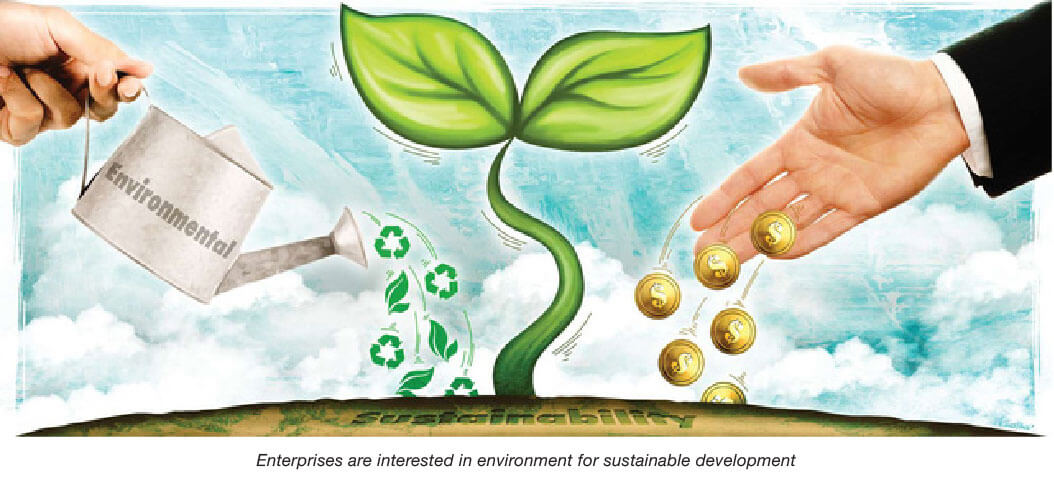
The food and beverage sector has responded to consumers’ eating and drinking demand the most rapidly with many enterprises attempt to provide healthy and environmental-friendly products ranging from veggies to egg, milk, rice, fruit juice and cosmetics. From giants such as Vingroup with Vineco, Vinamilk, TH Truemilk, Vinatea to small-scale production chains such as Saigon agricultural product chain, 3S veggies shop, Nong Lam Food, Nguyen Bao Food, 3F Viet Food, Anna Food House, Ky Viet Farm, Vuon Nha Minh moringa farm, Tien Phong OHEO safe pig breeding co-operative society, Viet safe veggie co-operative society, Nam Viet, Dalat FOODIE Vietnam, FarmShop, An Tam Farm, Dat Butter, One 4 One, Midori Shop, The Organik House – Go Eco, Gagaco Agriculture Ltd., Co.…
Next is issues of the plastics sector. Apparently, plastic equipment and products have gained in growing popularity among Vietnamese households. However, the economic growth has led to significant increase in plastic wastes. Many reports show that Vietnam ranks top among leading companies in terms of plastic wastes. Plastic wastes are commonly thrown into rivers, ponds and lakes, which causes environmental pollution given its durability while they are burned, which has adverse impacts on environment, human health and the ecology system.
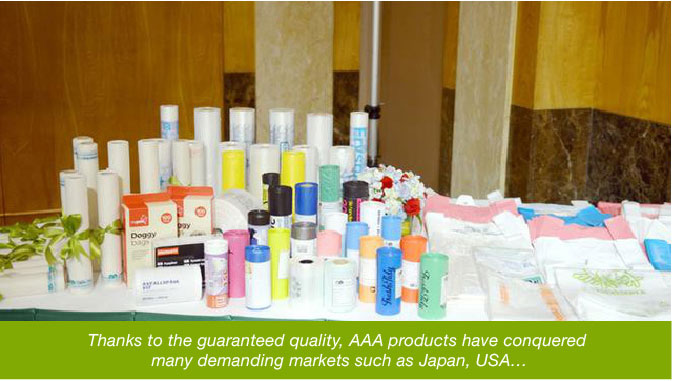
In a response to press, Mr. Ho Duc Lam, Chairman of the Vietnam Plastics Association, stated that no nation removed the plastics sector and was interested in recycling plastics, but the thing is, to find the way to ensure enterprises’ rights, environment protection and consumers’ safety.
Accordingly, Vietnam’s market has seen the rapid emergence of environment-friendly products with 43 products by 38 manufactures being certified environment-friendly plastic bags. In which, An Phat (AAA), a plastic and green environment giant stated their vision of not only becoming the leading environment-friendly plastic bag manufacturer but also aiming at creating an industrial and construction value chain, developing plastics sector’s ecology. Thanks to the guaranteed quality, AAA products have conquered many demanding markets such as Japan, USA…
To have high-quality and environment-friendly products, selection of technology is definitely the core factor. Tan A Dai Thanh Group is regarded as one of Vietnam’s enterprises with 12-high-tech-plant system and ad-hoc investment strategies. The large-scale investment in modern technology, advanced machinery supplied by the world’s leading suppliers lays the foundation for the best quality products of the Group.
The adoption of a modern Industry-4.0-oriented production assembly of Phu My SOP manufacturing plant has enabled it to have a clean, dirt-free, chemically odor-free, noise-free, sewage-free and exhaust-free. The plant adopts a robotic technological process under Industry 4.0 standards. The plant specially invest in the dust treatment and sewage circulation system. Accordingly, “Phu My SOP does not dispose of sewage and solid waste to environment”.
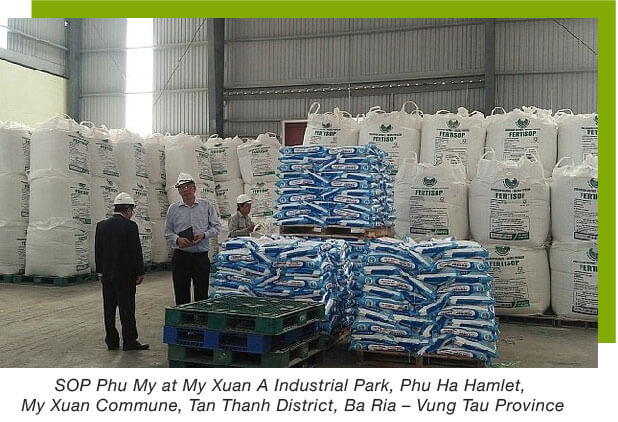
Similarly, some garment enterprises have quickly applied the clean production process. Hanoi Textile and Garment JSC (Hanosimex) invested nearly VND 223.5 million in the instalment of energy-saving equipment for 3S sewing machine which reduced non-load operating engine capacity and enabled engine’s optimized, highly effective and energy-saving operation. Tien Hung Garment Company (Hung Yen) installed 2 heating pumps replacing the existing boiler, used 35 LEDs replacing compact light bulks, and installed inverters for pump system. These equipment have helped the company to reduce energy expenses by VND 177.6 million per annum.
Apparently, the investment in environment-friendly technology products may require large initial investment capital, but bring about paramount benefits to enterprises. These benefits are not only saving of operating expenses in the long term but also the demonstration of concerted effort towards their sustainable development objectives.


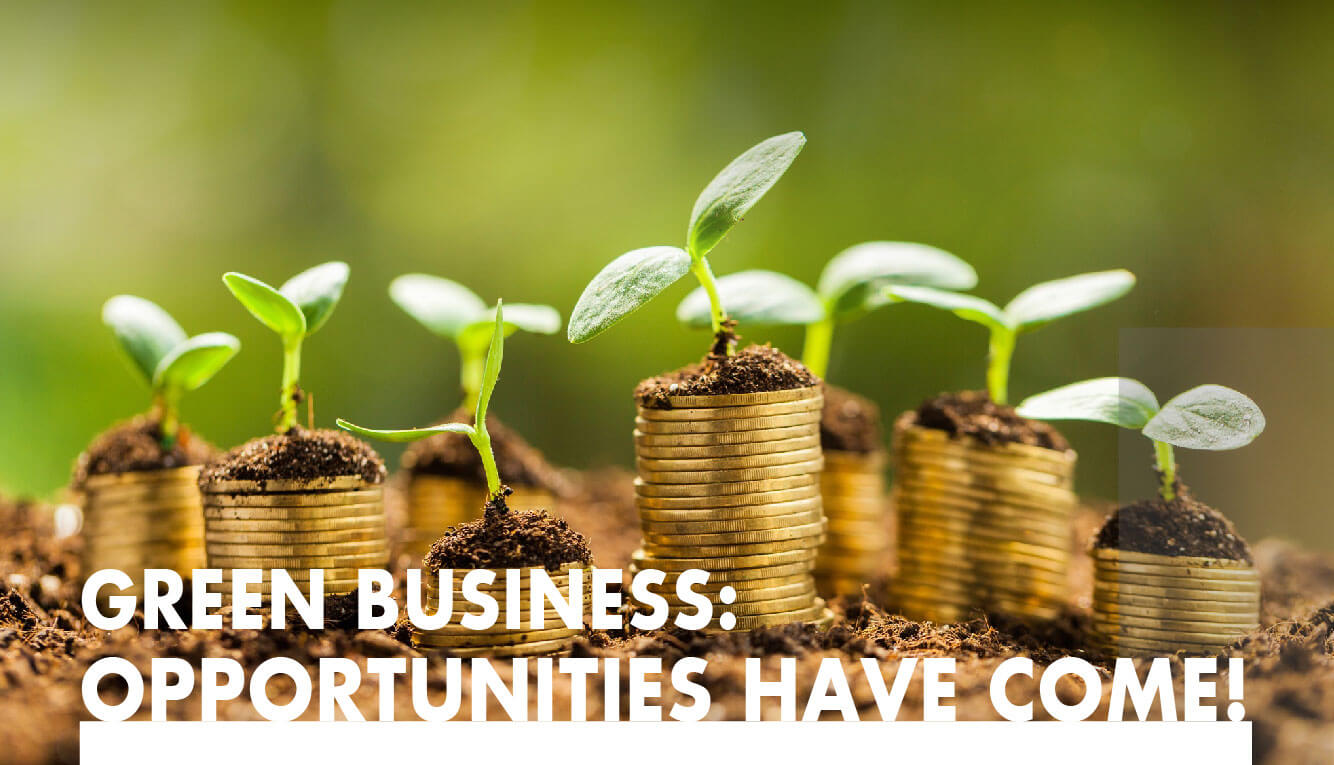





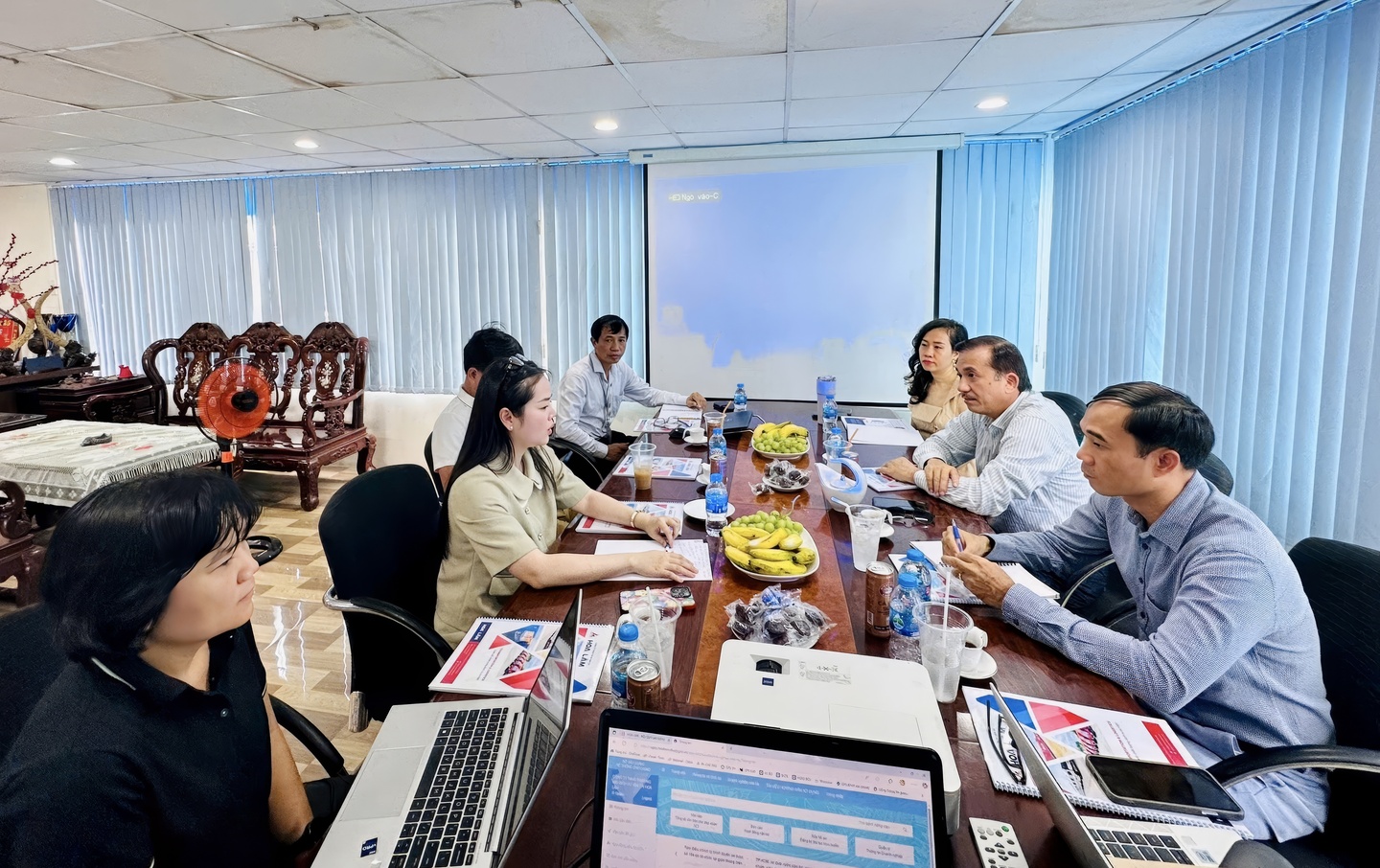
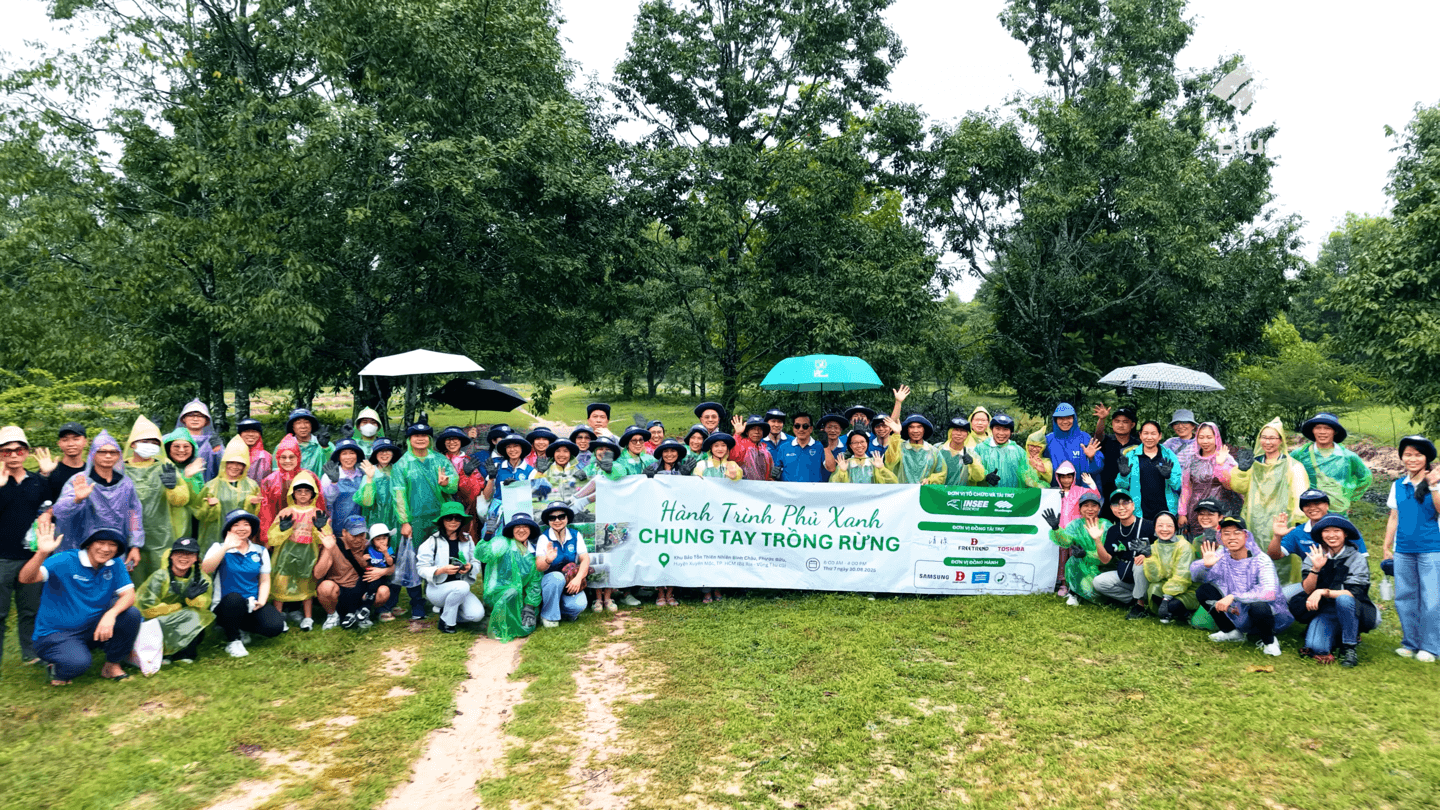
Comment